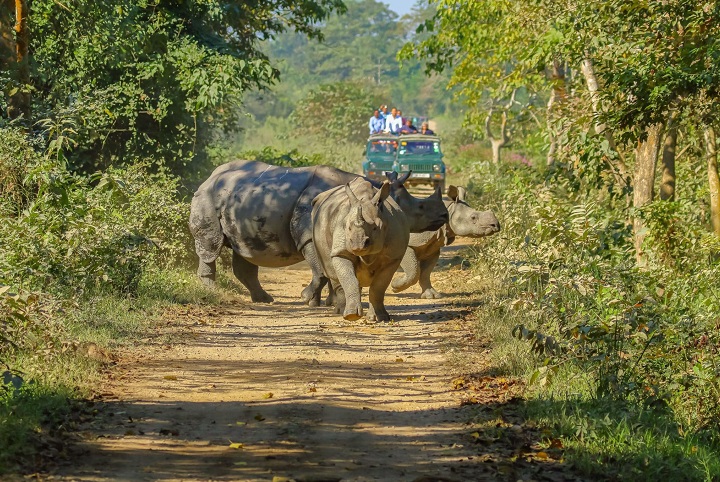11 Dec 2024

Tired Earth
By The Editorial Board

EarthRanger, an artificial intelligence programme for monitoring wildlife, has been deployed in six more natural parks in Botswana, Mozambique and the Republic of Congo. The project, which will run until March 2026, is funded by the Global Environment Facility (GEF) and its partners to the tune of US$7.2 million. It aims to reduce the decline of biodiversity in Africa.
A new conservation project is deploying EarthRanger software to enhance security around six protected areas in Africa. These are Chobe National Park in Botswana, Limpopo and Zinave National Parks in Mozambique, and Nouabalé-Ndoki, Odzala-Kokoua and Conkouati-Douli National Parks in the Republic of Congo. This makes a total of 4.9 million hectares of terrestrial protected areas (PA).
Developed by the US company Vulcan, EarthRanger is a data visualisation and analysis system that provides conservationists with the real-time information they need to keep wildlife, habitats and communities safe. Implemented in Botswana, Mozambique and the Republic of Congo, EarthRanger will improve infrastructure such as operations rooms, vehicle and animal tracking devices, and communication networks such as digital radio systems and long range radio.
A project funded by the GEF
The three-and-a-half year project (July 2022-March 2026) is funded by a Global Environment Facility (GEF) grant of US$2.4 million and co-financing of US$4.8 million from partners. “Protected areas in Africa are experiencing degradation and loss of biodiversity due to habitat destruction and unsustainable resource exploitation. Threats of poaching, human-wildlife conflict, timber harvesting, agricultural expansion and urbanisation are increasing. So are the challenges of invasive species, climate change and mining developments. EarthRanger is a timely and innovative solution that will help protected area managers, ecologists and wildlife biologists make more informed operational decisions for wildlife conservation,” says Claude Gascon, GEF Program Officer.
According to data from the Intergovernmental Science-Policy Platform on Biodiversity and Ecosystem Services (IPBES), about 1 million species are threatened with extinction in Africa, and many more will be in the coming decades. Unless action is taken to reduce the intensity of the drivers of biodiversity loss.
Source : afrik21.africa
Comment